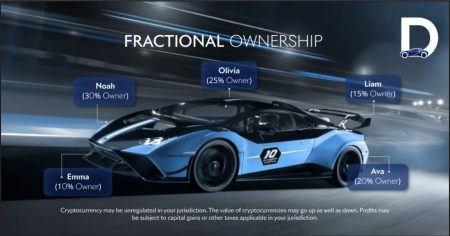So crooned Natalie Merchant and her 10,000 Maniacs in good old 1987. Arizonans sweltering through endless days at 110 degrees Fahrenheit and roasting Europeans could use a shiver, though tourists flocking to Death Valley for heat-record selfies seem fine.
Our call of the day from Jeffrey Kleintop, chief global investment strategist at Charles Schwab & Co., says investors should start putting the weather at the front of their investment minds, especially if in coming quarters as El Niño threatens economic disruption.
The “Little Boy” weather phenomenon stretches back to the 1600s when South American fishermen noted warming in the Pacific Ocean. Such warming, can shift temperature and weather patterns, lasting from months to years, while La Niña has the opposite effect.
As Kleintop notes, the World Meteorological Organization has predicted a 90% chance of an El Niño event in the second half of this year. Already this year we’ve had “off the charts” forest fires in Canada sends smoke south and while heavy rainfall in Chile has disrupted its copper mining industry, alongside lots of heat.
In Europe, low water levels for Germany’s Rhine and Ukraine’s Danube rivers have made it hard to move barges of industrial goods and grains (read about Germany’s troubles last year), while France’s Rhone river is too warm to cool nuclear reactors leading to power outages, said Kleintop.
“If these impacts continue to threaten agriculture, energy, and lives, or worsen–as forecasters expect –the economic impact could be significant for both inflation and economic activity,” said Kleintop.
Many countries have seen cooling core inflation, which includes food and energy, but extreme weather could send prices up again in coming months, he said. For example, low water levels in reservoirs could drive up energy inflation via gas and coal prices due to less hydropower, while higher AC needs would drive up energy demand.
If barges can’t get down rivers, the burden falls to trucking and rails, driving up freight and fuel transportation costs. And drought conditions could weigh on food prices, with rice prices
RRU23,
already the highest in more than two years as Vietnam and Thailand have been stockpiling, said Kleintop.
This all feeds into central banks needing to keep interest rates higher for longer if high food prices persist, the strategist said. That’s most notable in India, where food makes up 50% of inflation — it’s closer to 20% in China and 13% in the U.S.
Global food prices, as his chart shows, are down from last year’s highs, but remain high as El Niño effects may play out in the months ahead:
Read: El Niño has potential to disrupt the outlook for sugar, rice and other consumer staples
Investors must also remember how geopolitical unrest can flare up when food prices surge, such as in the Arab Spring of 2011. And in emerging and frontier market countries, food tends to make up a bigger chunk of consumer spending, he said.
As for markets, Kleintop says the past has shown rising volatility linked to weather events. The years 2015-16 saw a 13% selloff in the MSCI world index during the strongest El Niño ever recorded, though other factors were also involved and it was short lived. What investors could see a repeat of is volatility hitting sectors related to agriculture and energy — materials and energy sectors led that 2015-16 stock slump, he said.
Read: As the Dow hits 2023 high, one of the oldest stock-market forecasting tools is making a comeback
The markets
Stock futures
ES00,
YM00,
NQ00,
are struggling for traction ahead of more earnings and retail sales data, with bond yields
TMUBMUSD02Y,
TMUBMUSD10Y,
oil
CL.1,
and the dollar
DXY,
all steady.
For more market updates plus actionable trade ideas for stocks, options and crypto, subscribe to MarketDiem by Investor’s Business Daily.
The buzz
Bank of America
BAC,
Morgan Stanley
MS,
Charles Schwab
SCHW,
BNY Mellon
BK,
and Lockheed Martin
LMT,
will report ahead of the open.
Due at 8:30 a.m., retail sales for June are expected to show growth of 0.5%. Also on deck: industrial production at 9:15 a.m., followed by business inventories and a home builder confidence index at 10 a.m., alongside a speech from Fed Vice Chair Michael Barr on fair lending practices.
Cathie Wood’s ARK funds dumped $26 million more shares of Coinbase
COIN,
and $13 million more of Tesla
TSLA,
Masimo
MASI,
stock is dropping sharply after the hospital-equipment maker’s disappointing forecast for sales.
A day after disappointing growth data, China officials announced measures to boost domestic consumption, but fell short of major stimulus markets have been demanding, as Wall Street gloom over the country builds.
Best of the web
‘Sound of Freedom’ fans and AMC investors wage war of conspiracy theories
The buzz on oil at the Calgary Stampede was tempered despite rising prices
Go here, not there: 6 charming summer destinations off the beaten path
The chart
Steve Englander, head of North American macro strategy at Standard Chartered, says income data suggests actual GDP is overstating activity. Among the charts he offers as evidence for this view is this one showing a big divergence in GDP measured by income and GDP conventionally gauged through spending, even though data only runs through the first quarter of this year.
“The only other time when a comparable gap occurred was in the run-up to the 2008 recession; there was a somewhat more modest gap during the approach to the 1990 downturn,” said Englander. If his theory holds up, that would be the “next shoe to drop for the dollar,” as it would mark a downward shift in interest rate expectations, he says.
Top tickers
These were the top-searched tickers on MarketWatch as of 6 a.m.:
| Ticker | Security name |
|
TSLA, |
Tesla |
|
NVDA, |
Nvidia |
|
NIO, |
Nio |
|
TAI, |
Talmora Diamond |
|
AAPL, |
Apple |
|
MULN, |
Mullen Automotive |
|
GME, |
GameStop |
|
PLTR, |
Palantir Technologies |
|
AMC, |
AMC Entertainment |
|
AMZN, |
Amazon.com |
Random reads
Six month on the road for $120,000 a year, driving a truck.
California authorities on the lookout for a surfboard-stealing sea otter.
Need to Know starts early and is updated until the opening bell, but sign up here to get it delivered once to your email box. The emailed version will be sent out at about 7:30 a.m. Eastern.
Listen to the Best New Ideas in Money podcast with MarketWatch reporter Charles Passy and economist Stephanie Kelton.
Read the full article here









